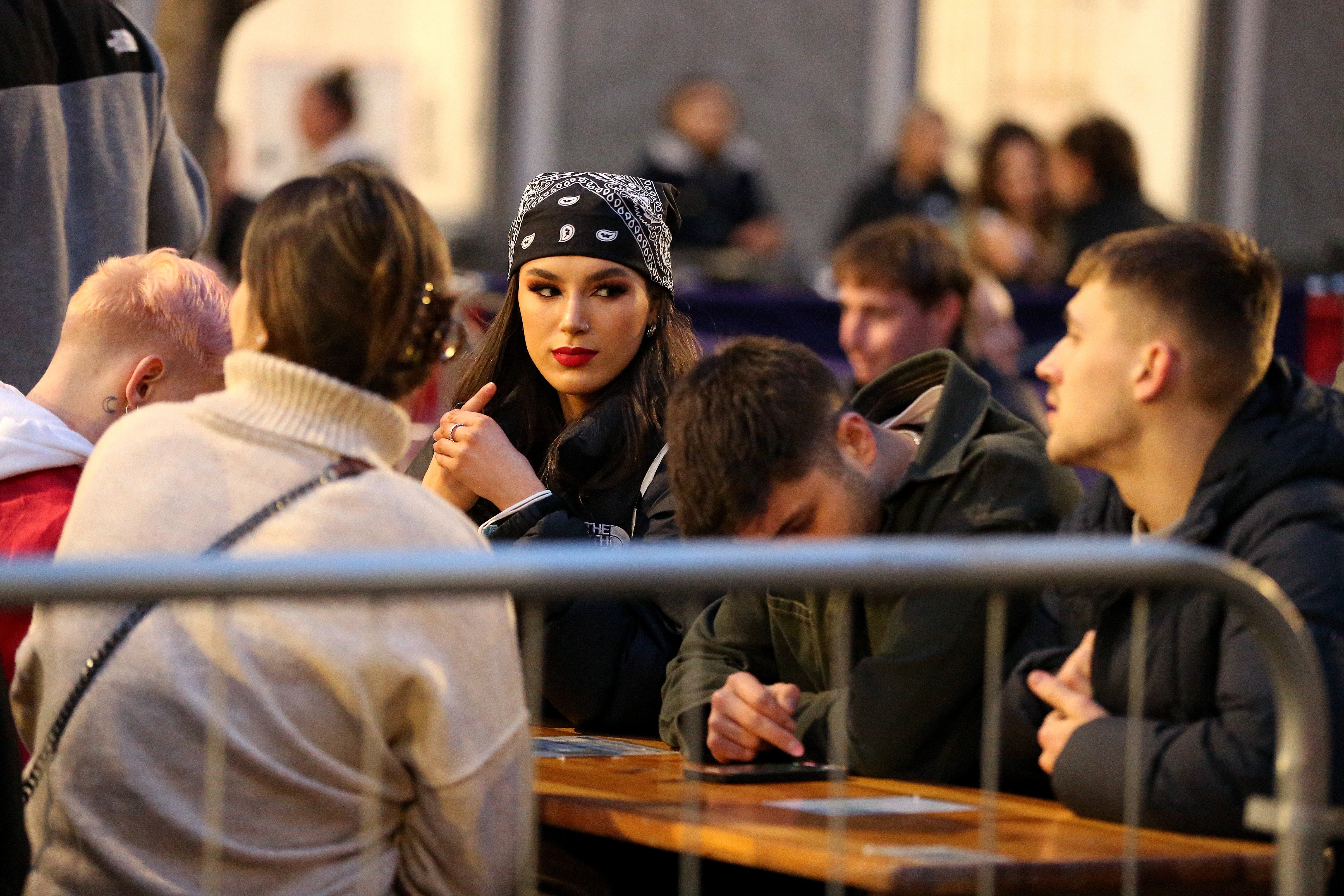Many Britons feel no one knows the ‘real’ them, poll says
The emotions of sadness and anxiety are ones people admitted to most often covering up

Your support helps us to tell the story
From reproductive rights to climate change to Big Tech, The Independent is on the ground when the story is developing. Whether it's investigating the financials of Elon Musk's pro-Trump PAC or producing our latest documentary, 'The A Word', which shines a light on the American women fighting for reproductive rights, we know how important it is to parse out the facts from the messaging.
At such a critical moment in US history, we need reporters on the ground. Your donation allows us to keep sending journalists to speak to both sides of the story.
The Independent is trusted by Americans across the entire political spectrum. And unlike many other quality news outlets, we choose not to lock Americans out of our reporting and analysis with paywalls. We believe quality journalism should be available to everyone, paid for by those who can afford it.
Your support makes all the difference.Almost half of Britons admit nobody knows the ‘real’ them – including friends, family and even their own partner.
A total of 2,000 adults were polled and it was found that a third often feel the need to hide their true feelings from others, with the average adult wearing a ‘virtual mask’ four times a week.
64 per cent claim they hide how they really feel so regularly that even they sometimes can’t tell who they are.
The poll revealed that people are most likely to hide their true self from strangers and work colleagues, but some also cover up in front of friends.
A few will even put a ‘mask’ on in the company of their partner, with almost four in 10 admitting that this has led to arguments about what they are hiding.
However, only one in 10 admit to faking a persona in front of the police and 14 per cent will hide their true selves when seeing a doctor.
The poll was commissioned by discovery+ to mark the launch of Michael Jackson: A Faking It Special.
Kerry Daynes, Consultant Forensic Psychologist who features in the documentary said: “Sharing thoughts and feelings can be difficult, and the growth of social media combined with the extended period of isolation we’ve found ourselves in has no doubt made it feel more necessary for people to hide their true self behind a protective persona.
“However, it’s important to remember that bringing our most authentic self to situations is the best policy, and sometimes there might be a more sinister side to someone’s deceit.
“It is normal, and healthy, to put on a persona to help get through a difficult day.
“For example, we may need to wear a ‘cool as a cucumber’ mask to appear less anxious or frustrated; many of us have a ‘professional mask’ that encompasses enjoying mundane tasks or getting on with your colleagues.
“There’s also the ‘suck ups’ for those who feel the need to always people please at work, at home or make a good first impression; as well as the ‘peace makers’ for those in relationships or who act as the problem solver or chief negotiator to keep everyone happy.”
The study also found that reasons for wearing a ‘mask’ include appearing more confident and to ‘save face’. For some it was to hide their fear and a few use it to help them get through difficult times.
Sadness and anxiety are the top emotions which people admit to covering up the most and a few will often hide their anger.
The most common ‘masks’ include appearing fine when something has upset them, acting strong when they’re not, and seemingly being organised and in control.
However, some have been called out for hiding their true feelings – with a few feeling embarrassed about it but others were glad it was noticed.
Nearly everyone asked reckoned it’s natural to hide your true feelings sometimes, with more than half hiding aspects of their personality from others.
A third have pretended to like a gift even when they don’t and 20 per cent put on a fake smile in front of their kids and family when they’re feeling grumpy.
Despite this, the study conducted via OnePoll also found almost everyone asked agreed that honesty and straightforwardness in other people are important to them.
Kerry added: “It’s clear we all feel the need to use faking as a social or coping strategy sometimes.”
“Other personas identified in this project include ‘the scrounger’ the person who is always looking for a freebie and flirts with the barista to get a free coffee, ‘the tardies’ who are always ‘on their way’ or ‘just finishing up’ and the ‘fitness fabricators’ who order the salad when they really want the chips.”
SWNS
Join our commenting forum
Join thought-provoking conversations, follow other Independent readers and see their replies
Comments